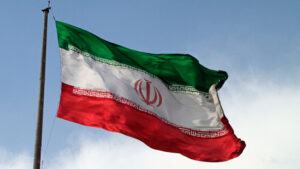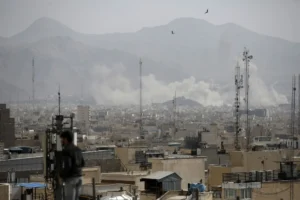
Published 07/04/2024 16:17 | Edited 07/04/2024 17:41
At a time of global and regional challenges, progressive forces in Latin America reaffirmed their commitment to confronting the far right and defending peoples’ rights during the 27th Meeting of the São Paulo Forum (FSP), held in Tegucigalpa, Honduras. The event, organized by the Libertad y Refundación (Libre) party of Honduras and the Executive Secretariat of the FSP, took place within the context of CELAC (Community of Latin American and Caribbean States) Social 2024 and marked 15 years of resistance to the coup against President Manuel Zelaya.
In their final statement on June 27, the FSP member political parties and movements highlighted the need for concrete action in the face of current threats, which include the hegemonic ambitions of the United States and its NATO allies, the military alliance against Russia, the rise of the far right, climate change, economic and social inequality, and forced migration. They also strongly condemned the Israeli genocide against the Palestinian people, demanding an immediate ceasefire and a just solution to the Israel-Palestine conflict.
At the continental level, the FSP denounced the application of unconventional warfare methods by the neoliberal far right, citing the impeachment of President Pedro Castillo and the conviction of Vladimir Cerrón in Peru, the arrest of former Vice President Jorge Glas in Ecuador, and the preventive detention of Mayor Daniel Jadue in Chile. These events were classified as attacks on democratic and humanitarian rights, demanding a strong response from progressive forces.
Victories and challenges
The recent electoral victory of Claudia Sheinbaum in Mexico, the country’s first female president, has been celebrated as a significant milestone. This result, achieved with a record number of votes, represents recognition and support for the progressive policies of the government of Andrés Manuel López Obrador.
Since the last FSP meeting, there have been several popular demonstrations against neoliberal policies, notably the protests in Argentina against Javier Milei’s government program. The fight against colonialism was also reaffirmed, with support for the self-determination of Puerto Rico and the Sahrawi people.
Unity in diversity
The FSP emphasized the importance of unity among left-wing forces, social movements and progressive intellectuals to face current challenges. Regional integration was highlighted as the greatest strength of progressive forces, celebrating the 10th anniversary of the Proclamation of Latin America and the Caribbean as a Zone of Peace. The leadership of CELAC under Ralph Gonsalves and Xiomara Castro was recognized as fundamental to strengthening regional integration.
The fight against disinformation and the dominance of media conglomerates was highlighted as essential. The FSP called for the strengthening of alternative media and political education to resist right-wing and far-right campaigns.
Migration, exacerbated by neoliberal policies, was identified as an urgent challenge. The FSP highlighted the need for policies that protect the rights of migrants and recognized the leadership of Andrés Manuel López Obrador in managing migration issues.
Condemnation of the blockade and support for democracy
The FSP condemned the economic blockade against Cuba and the sanctions against Nicaragua and Venezuela, calling them a violation of international law and an impediment to sustainable development. The Venezuelan people’s resistance to coercive measures was praised, as was the Bolivarian government’s commitment to democracy.
Support for the independence of Caribbean territories and solidarity with social movements were reaffirmed. The FSP highlighted the importance of cooperation with political spaces such as the BRICS Political Parties Forum and the Conference of Asian Political Parties to strengthen the progressive left globally.
The 27th FSP Meeting reaffirmed the historic responsibility of progressive forces to achieve governments committed to social justice and equality. Unity in diversity and resistance to imperialist threats are seen as essential for the construction of a free, sovereign and independent Latin America and the Caribbean.
Download the full Final Declaration in PDF
Source: vermelho.org.br

